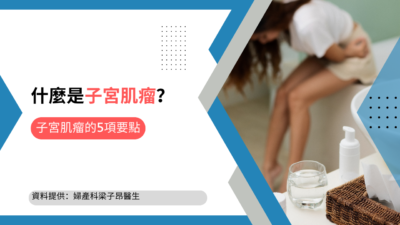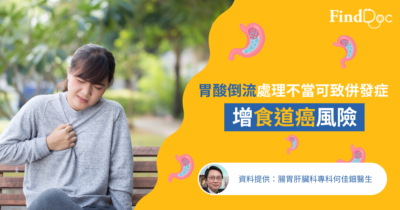Is it true that the older you get, the less you sleep? According to a questionnaire survey conducted by the Chinese University of Hong Kong’s Centre for Communication and Public Opinion Survey in February 2020, about 7 out of 10 Hong Kong residents suffer from insomnia[1]. As we age, it is normal for our sleep and deep sleep to shorten[2]. However, if the quality of our sleep is poor, not only will this affect our mental state during the day, such sleep disorders may also increase the risk of cardiovascular disease.
Sleeping a lot does not mean sleeping well.
When it comes to sleep, many people think that simply having a long, uninterrupted period of sleep throughout the night means that one is practicing healthy sleep habits. This is a misunderstanding. While good sleep can restore the body, merely sleeping more without reaching the stage of deep sleep due to various sleep disorders will have only a marginal effect on recovery.
Common sleep disorders include insomnia, sleep apnoea, hypersomnia, and parasomnia (sleepwalking). Let us examine two of the sleep disorders: insomnia and sleep apnoea.
Insomnia[3]
Insomnia can refer to difficulty falling asleep, maintaining a state of sleep, or even both at the same time. Insomnia can be divided into acute and chronic insomnia.
- Acute insomnia is usually caused by stress or mental trauma and can last from several days to several weeks.
- Chronic insomnia may arise as a symptom of other diseases, or as a side effect of certain conditions such as drugs or other sleep disorders, etc. It may also be caused by caffeine, tobacco, alcohol, etc., but not all of the causes can be identified. Chronic insomnia can last for a month or longer.
Difficulty in maintaining sleep is a symptom of insomnia. Insomniacs may sleep only intermittently throughout the night, wake up prematurely, or even wake up feeling as though they had not slept at all. Faced with this, many people may try to take nutritional supplements or even sleeping pills to improve the situation. However, if insomnia persists despite multiple attempts at self-treatment, the sufferer should seek professional medical advice as soon as possible. The doctor will diagnose the cause of the patient’s insomnia via consultation, clinical examination, sleep testing, and prescribe the appropriate treatment.
Sleep apnoea[4]
Sleep apnoea is not just the occurrence of snoring, but a sleep disorder where the sufferer’s breathing is shallow or even stops during sleep. People suffering from sleep apnoea stop breathing from a few seconds to even minutes at a time, something which can occur up to 30 times per hour or more. Sleep apnoea is related to insomnia and may even cause other sleep disorders, a common example being hypersomnia.
Sleep apnoea is classified into three types: obstructive sleep apnoea (OSA), central sleep apnoea (CSA) and mixed sleep apnoea. Of these, obstructive sleep apnoea is the most common, with 90% of sleep apnoea cases falling into this category[5]. Studies show that 4.1% of men and 2.1% of women in HK between 30-60 suffer from obstructive sleep apnoea[6].
When a sufferer of OSA is sleeping, the soft tissue near the throat relaxes and obstructs the airways, causing suffocation. When breathing resumes, there may be snoring or choking sounds. Although sufferers of OSA will generally snore comparatively loudly, snoring does not necessarily indicate sleep apnoea. To diagnose whether a patient suffers from sleep apnoea, doctors need to study their personal medical history, family medical history, conduct clinical examinations, and perform sleep tests.
Sleep disorders can affect cardiovascular health.
Sleep disorders not only affect the mental state of patients during the day, but may also increase their risk of cardiovascular disease. Take sleep apnoea for example. If not properly addressed, it can increase the risk of hypertension, coronary heart disease, atrial fibrillation, stroke, and heart failure. Two clinical trials have pointed out that 50-60% of patients with systolic heart failure also suffer from sleep apnoea.[7]In addition, OSA can cause drowsiness during the day and sufferers are 2-6 times more likely to encounter a traffic accident than ordinary people. This is why obstructive sleep apnoea endangers both the self and the people around you.[8]
A variety of sleep disorders are related to sleep apnoea. Therefore, if you find that your long-term sleep quality is poor, you should consult a doctor as soon as possible and diagnose your sleep disorder through a sleep test.
This health article was written by the FindDoc
editorial team, and has been reviewed by Dr. Julian Yau Kay Chung, a specialist
in ENT.
[1] 香港失眠研究報告. (2020). Retrieved September 25, 2020, from https://www.have-a-goodnight.hk/report/
[2] Li, J., Vitiello, M. V., & Gooneratne, N. (2019). Sleep in Normal Aging. Retrieved September 25, 2020, from https://www.ncbi.nlm.nih.gov/pmc/articles/PMC5841578/#:~:text=Compared%20with%20young%20adults%20(10.5,shorter%20average%20nighttime%20sleep%20duration.
[3] U.S. National Library of Medicine. (2020, April 30). Insomnia. Retrieved September 25, 2020, from https://medlineplus.gov/insomnia.html
[4] U.S. National Library of Medicine. (2020, July 07). Sleep Apnea. Retrieved September 25, 2020, from https://medlineplus.gov/sleepapnea.html
[5] Hospital Authority. Sleep Apnoea 睡眠窒息症. (2011, April). Retrieved September 25, 2020, from https://www3.ha.org.hk/cph/imh/doc/information/publications/1_10.pdf
[6] Ip, M., Lam, B., Tang, L., Launder, L., Ip, T., & Lam, W. (2004). A Community Study of Sleep-Disordered Breathing in Middle-Aged Chinese Women in Hong Kong. Retrieved September 25, 2020, from https://journal.chestnet.org/article/S0012-3692(15)31783-9/fulltext
[7] McEvoy, R. (n.d.). Obstructive Sleep Apnea and Heart Failure Two Unhappy Bedfellows. Retrieved September 25, 2020, from https://www.atsjournals.org/doi/full/10.1164/rccm.2312013
[8] Hong Kong Specialist Medical Association. 睡眠手冊 對抗失眠有妙法. (n.d.). Retrieved September 25, 2020, from http://www.hksma.org.hk/portal/content.do?path=/zh/mediaC/publicInfoC/healthInfoC/RespiratoryDivision#:~:text=阻塞性睡眠窒息症患者交通意外的機會,性睡眠窒息症刻不容緩%E3%80%82

























































Share article